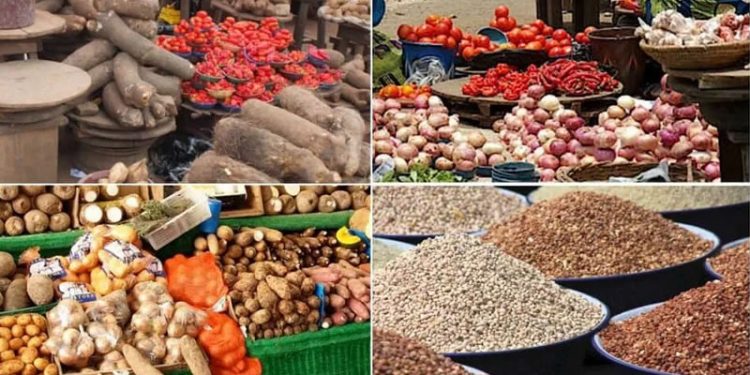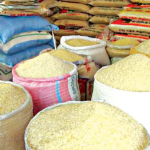The average price of food in Nigeria rose from N2,862.14 in November 2024 to N2,920.13 in December 2024, according to the National Bureau of Statistics (NBS) in its latest report, Selected Food Price Watch December 2024. This represents a 91.6% year-on-year increase from N1,524.63 recorded in December 2023.
Food price inflation varied significantly across Nigeria’s six geo-political zones, with the South-East region experiencing the highest average food price of N3,484.48 in December, up from N3,366.41 in November 2024. In contrast, the North-West recorded the lowest at N2,526.7, reflecting a slight increase from N2,511.86 in November 2024.
Average Food Prices by Region (December 2024):
– North Central: N2,732.00
– North East: N2,799.19
-North West: N2,526.72
– South East: N3,484.48
– South South: N3,159.44
– South West: N3,009.91
Breakdown of Key Food Items:
– Beans (Brown, Sold Loose):
The average price of 1kg of brown beans fell to N2,501.32 in December 2024, a 187.29% year-on-year increase from N870.67 in December 2023, but an 8.07% month-on-month decrease from N2,720.96 in November 2024.
– Onion Bulbs (1kg):
Prices surged by 111.74% year-on-year, climbing from N971.86 in December 2023 to N2,057.81 in December 2024, with a 9.57% month-on-month increase from N1,878.00 in November 2024.
– Palm Oil (1 litre):
The price of 1 litre of palm oil rose to N2,582.35, reflecting an 81.18% year-on-year increase from N1,425.32 in December 2023, and a 4.68% month-on-month increase from N2,466.79 in November 2024.
The NBS survey covered about 40 food items, including rice, garri, frozen chicken, and dried fish, highlighting the widespread impact of inflation on households nationwide.
Analysts link the surge to insecurity in food-producing regions, disruptions in supply chains, and rising production costs. These challenges exacerbate inflationary pressures and deepen economic hardships for Nigerians.
A report by PricewaterhouseCoopers (PwC) forecasts that 33.1 million Nigerians could face food insecurity by 2025 due to persistent economic challenges, rising inflation, and violence in agricultural zones. The report also warns that the number of people living below the national poverty line could increase by 13 million by 2025.
These rising food prices underscore the urgent need for policy interventions to address inflation and improve food security across Nigeria.










